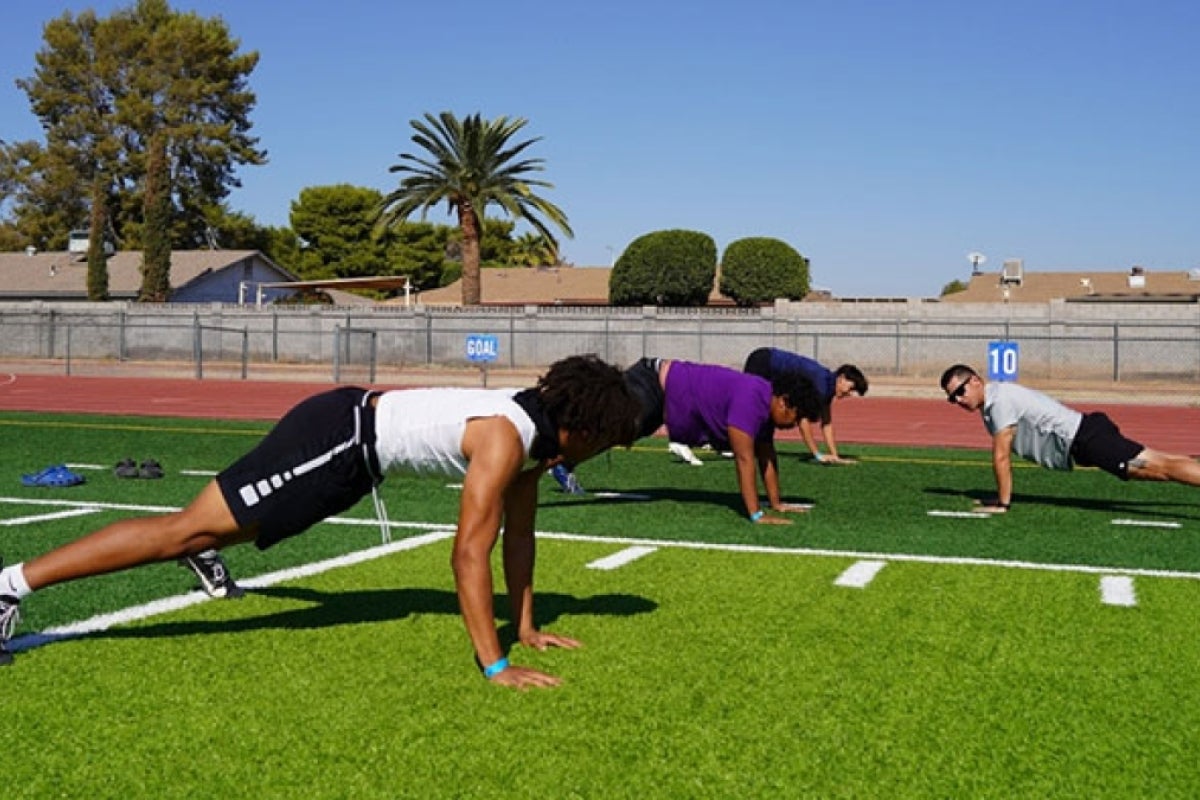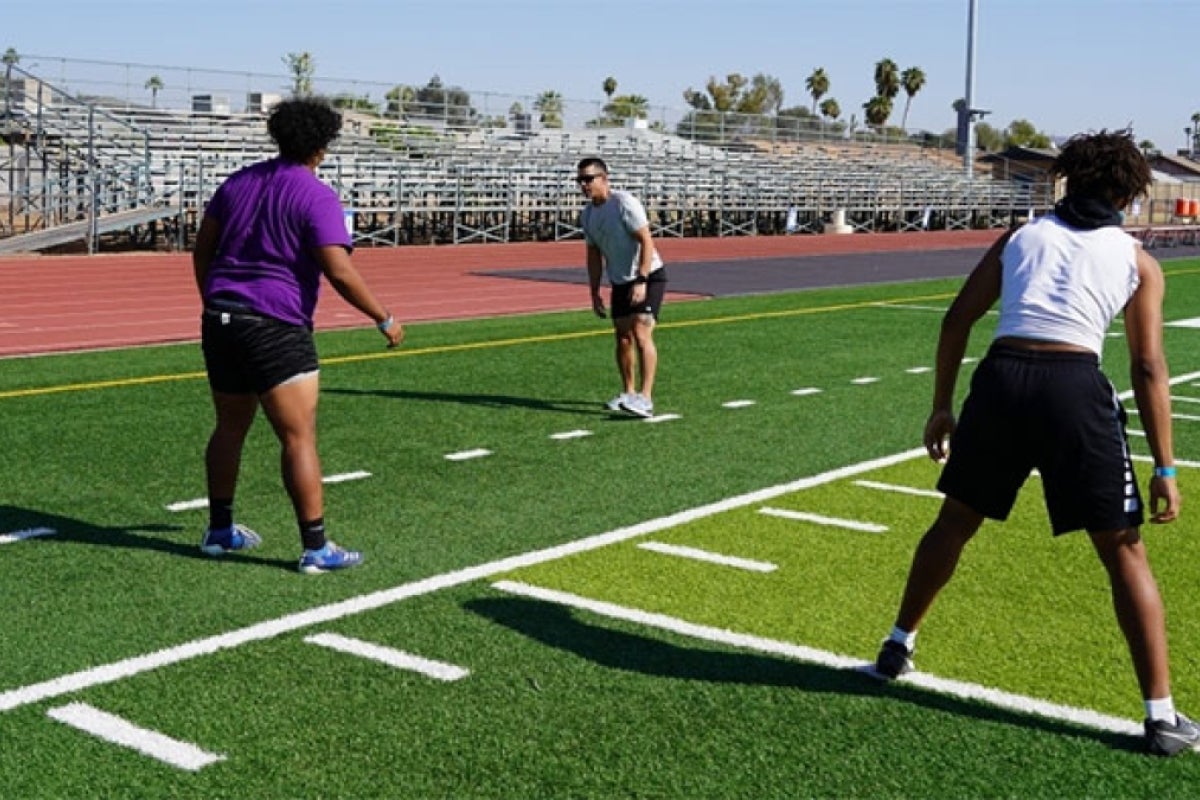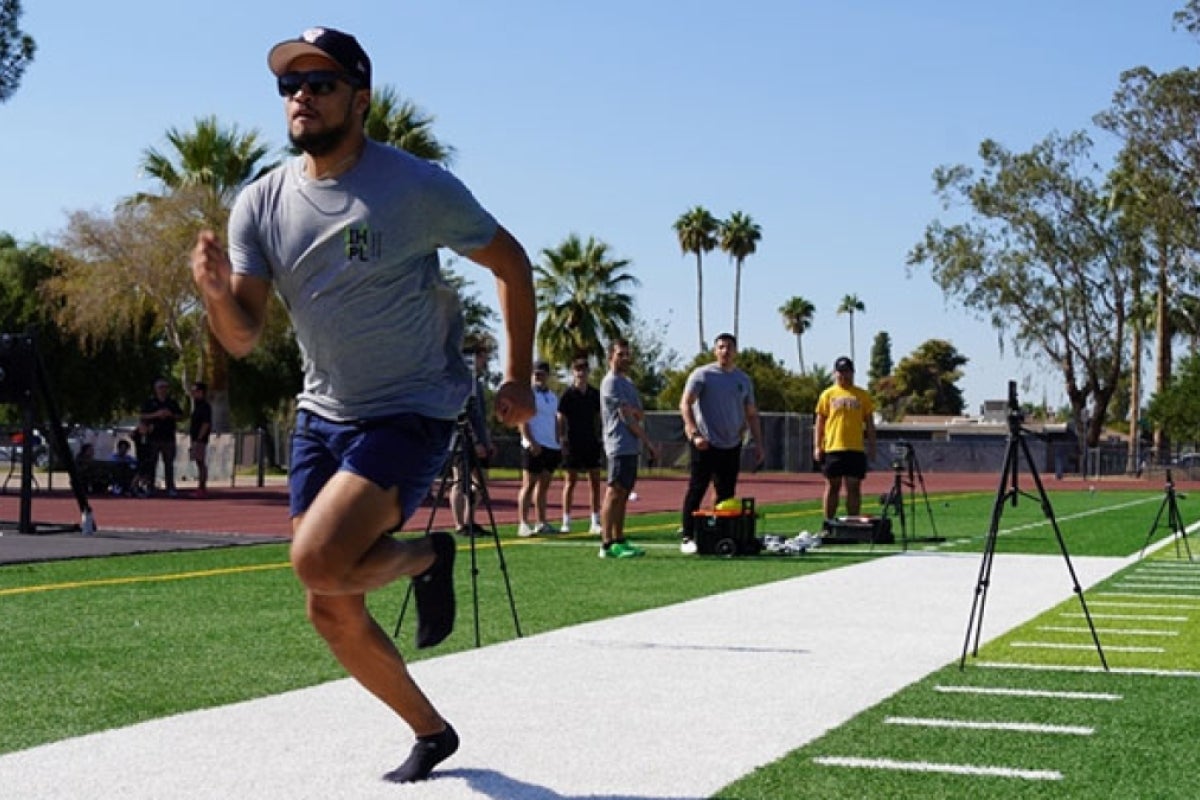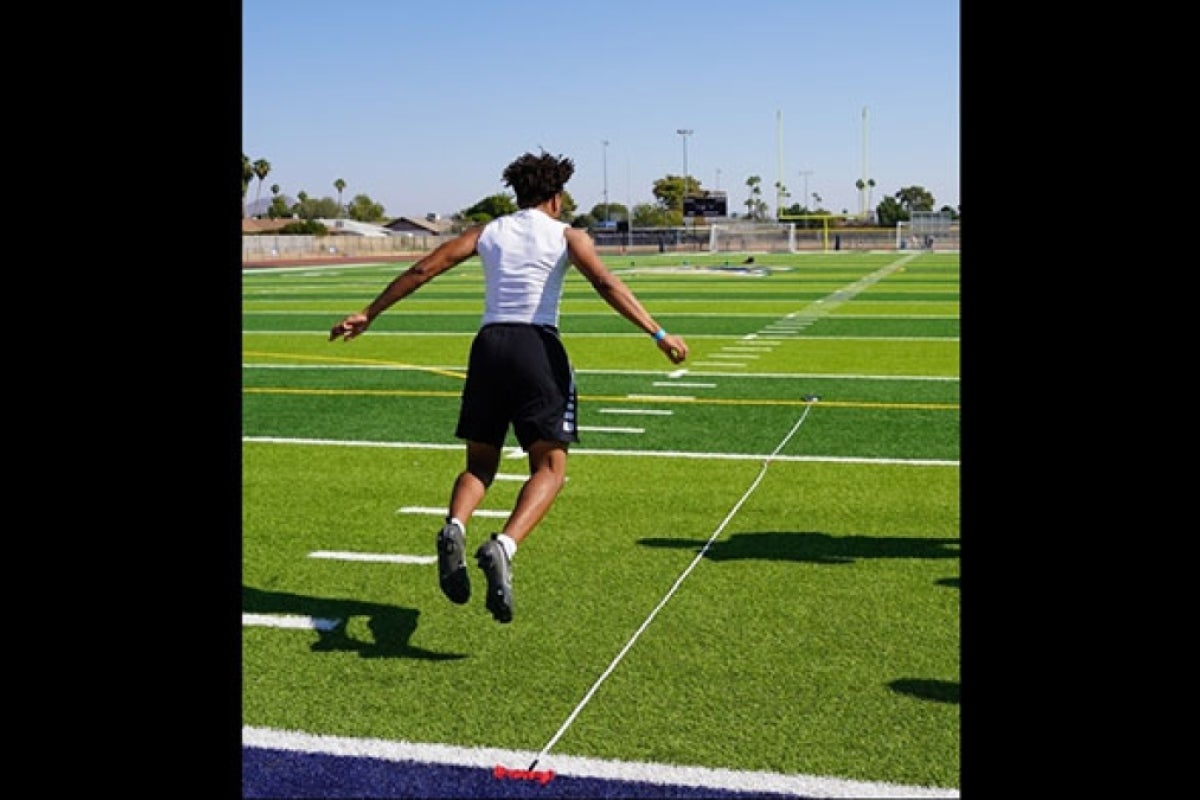ASU colleges team up to host sports testing for Valley high school athletes

Phoenix-area high school athletes took part in an athletic performance lab put on by students from ASU's College of Health Solutions' Integrative Human Performance Lab, the W. P. Carey School of Business and the Watts College of Public Service and Community Solutions. Photo courtesy Keri Hensley/ASU
Local high school athletes were able to get valuable feedback on their skills and abilities thanks to an event developed by the Integrative Human Performance Lab within the College of Health Solutions and the W. P. Carey School of Business at Arizona State University.
Event day operations were also supported by ASU's Watts College of Public Service and Community Solutions.
The event took place at Glendale Apollo High School on Nov. 4 and tested multiple measures of athletic performance, including a 40-yard dash, shuttle drills, vertical jump, reaction time testing, broad jump and upper body strength measures — similar to what might be seen at the NFL Scouting Combine to assess players looking to be drafted.
Noah Feinberg, a master's student in strength and conditioning, said the event gave students a chance to learn skills that would be valuable to potential employers in the sports science, athletic training, and strength and conditioning fields.
“It’s hands-on experience being able to test athletes in large groups and handle large amounts of data,” Feinberg said. “That’s something you probably wouldn’t be able to do unless you volunteer for events like this. It’s also a chance to be a part of the community and give back to the kids in Arizona. It’s a fun event. It’s testing athletes and being able to give them a cool experience.”
Each athlete received an individualized report to help them understand their strengths and weaknesses. The data collected was also used to create team reports for the high school coaches to provide information on their performance and help develop future programs.
Apollo High School senior Jordan Walker said he enjoyed the event, particularly the 40-yard dash and three-cone shuttle drill, where he recorded some of the fastest times.
He said he hoped the information might help him in his goal of playing college football.
“It really was a great experience for me,” Walker said. “I’ve never done anything like this before with lasers and exact timing and stuff. I think it was a great experience to get myself out there and maybe post (results) on (X, formerly known as Twitter) or some place for college coaches to see.”
Story by Cheyla Daverman, digital content producer, and Weldon B. Johhson, communications specialist, College of Health Solutions
More Health and medicine

Bird flu: Your questions on symptoms, spread and safety answered
Bird flu is no longer only “for the birds.”Infections have expanded beyond wild birds and poultry to a range of animals — from…

Making medicine side-effect free
Many drugs that address medical conditions can come with serious side effects. In drug commercials, the litany of potential side…

Diagnostic research happening at ASU focused on detecting diseases earlier to save lives
It was one of America’s founding fathers, Benjamin Franklin, who may have foreshadowed today’s health care innovation when he…





